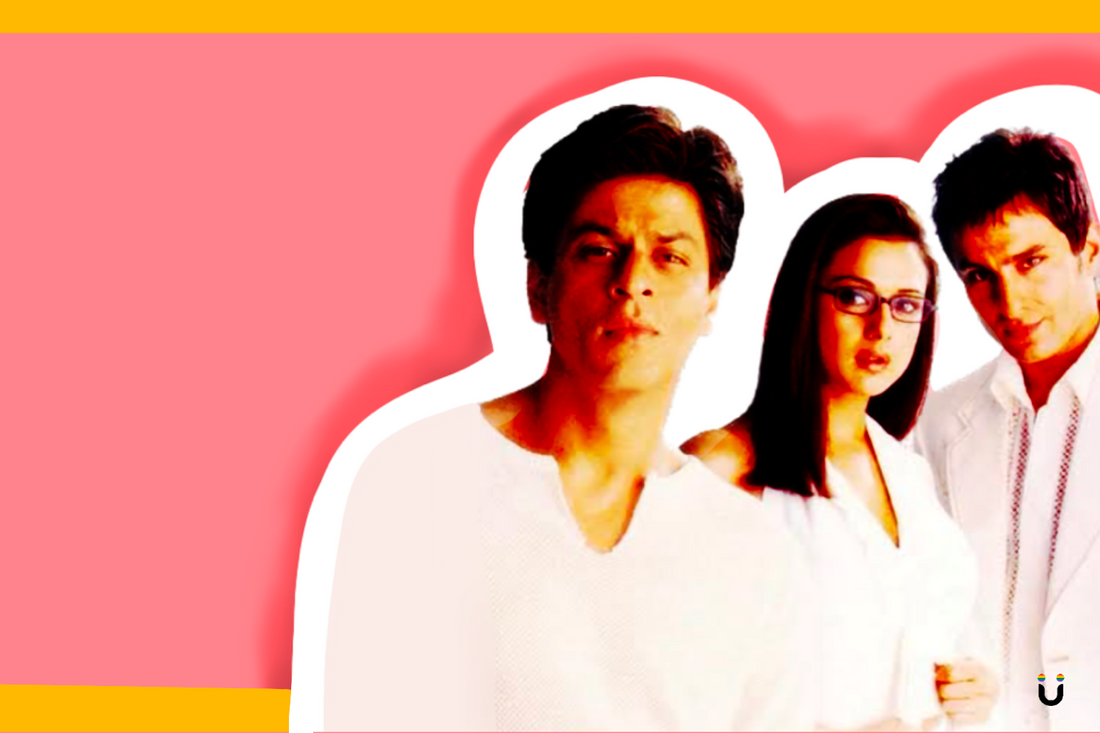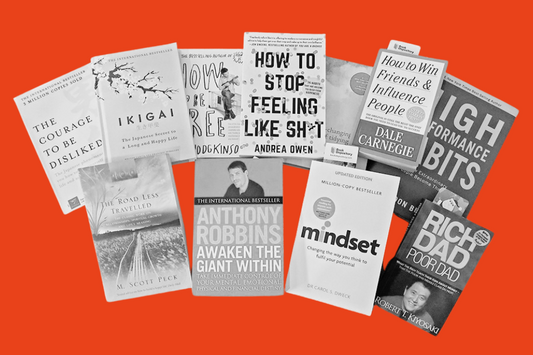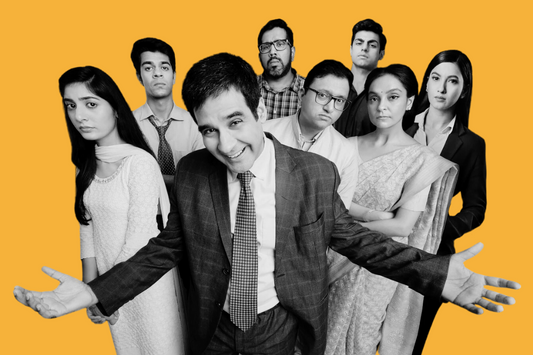
#Opinion: I Watched Kal Ho Na Ho As A Therapist And Had A Lot Of Thoughts(Bollywood movie)
Share
This blog needs to start off with a very important disclaimer: No, I didn’t grow up watching a lot of television or being exposed to media. Yes, I had a lovely childhood.
But that’s the thing about not watching the idiot box; it meant that I was completely out of the loop when it came to conversations about movie characters, celebrity crushes, television gossip and the works. To reassure you, no, I did not live under a rock. Yes, I’d heard about these characters and the actors who played them; I just couldn’t really be a part of those conversations. Nevertheless, it did induce the tiniest amount of FOMO, and maybe just a flicker of unmet curiosity of what the screen could elicit from within.
Which is exactly why (and supplemented by a lot of coaxing from my friends), I went on a throwback journey of Bollywood movies from the early 2000’s. On a friend’s recommendation, I decided to start my movie marathon with a screening of ‘Kal Ho Na Ho’. Suffice to say, my younger self’s expectations were really shaken.
See, I’m not stupid. I am well aware that Bollywood floats in the realm of romanticised concepts and high octane drama. But it also borders on toxic behaviours and (even more toxic) plot lines. I know that I technically can’t blame Shah Rukh Khan for acting out a role (is that a good enough justification for all of you not to come at me with pitchforks, please?), but unfortunately, I don’t know him or can’t seem to redeem him beyond his role in the film.
I’d heard that his character had brought people to tears - but not the ones that I’d expected. There’s no other way to say it: The only way I could sum him up was that he was a really… toxic protagonist. I almost categorically judged everyone who asked me how I loved the movie. My honest opinions were not well-received by anyone who’d watched it way back in 2003, clearly. And they defended it just like someone would have twenty years ago.
See, it’s 2023, and things have changed. Today, the movie is definitely outdated (and no, I’m not even going to focus on the recurring themes of sexism, racism, toxic stereotypes etc. that the movie perpetuates in abundance). Instead, I want to focus strictly on the plot and interactions between the main characters - primarily Aman (represented as an angel come done by the poor humans who would be truly dysfunctional without him).
Before we dive in with a quick recap, know that this is a tale of a ‘hero turned victim’.
We have Naina (an uptight, nagging nerd-type stuck in a dysfunctional family, still grieving the death of her father) who prays heavily for a miracle only for Aman (an intrusive jester who plays the saviour) to appear like God’s literal gift to mankind. Naina is going about her life with her best friend Rohit (a womaniser who struggles with his immaturity) and everything seems to be smooth sailing, until Aman comes in and shakes things up for them.
He forces Naina to live life in a (cliched) cool way and forces Rohit to fall in love with his her. Then - cue the love triangle gone chaotic - Naina falls in love with Aaman, who lies and tells her that he is married - leading heartbroken Naina to be vulnerable and seek comfort in the arms of Rohit (who is also now being influenced to fall in love with Naina) - but hey, Aaman is secretly in love with Naina but actually needs her to be with Rohit - are you still with me?
I can tell that this is all getting a bit too convoluted.
Eventually, Naina and Rohit find out that Aman is not married and that the woman they thought was his wife is actually his doctor (!) and that he has cancer (!!). Naina and Rohit get married. Aman cries and collapses at their wedding. Naina and Rohit meet Aman in the hospital. Naina now has to get over Aman all over again and say her final goodbye. Meanwhile, Aman and Rohit have a heart to heart where he tells him that, and let me try and quote this verbatim ‘Rohit gets to keep Naina in this life, but in their next life, Naina will be with him.’
If you’re still with me, you can finally wrap your head around that mess.
Television might have come a long way but what is still extremely relevant in today’s time is the compulsive lying, the manipulation and the entitlement that comes with Aman’s character. I would assume that we have all had the privy of meeting a version of Aman in our life - be it a nosey aunty, an interfering family member, toxic friends, gaslighting partners, etc. But unfortunately, in real life, the outcome wouldn’t look like a throwback of a fond memory you’d want to tell your kids about.
Naina’s boundaries were continuously crossed throughout the movie but it was casually brushed off because it all happened for the ‘greater good’ - to make her a fun-cool girl. Aman compulsively (and repeatedly) lied to her but since it was at the price of him martyring himself - it’s all… justified?
This man put this woman through emotional hell and turned her life upside down - and for what? Was he blind to the repercussions of his actions? His actions seem to be justified through his literal tears (maybe he was feeling bad or missing out, I’d never know) or just him being “selfless” - but to what end?
Aman is nothing but selfish and self-entitled - so blinded by his own needs and feelings (and righteousness, lest we forget) that he didn’t stop to think of how anyone else would get affected.
He played puppet master to people who he didn't seem to think knew how to live their life on their own. I can’t believe I am saying this out aloud, but the character that ended up getting the shortest end of the stick was poor Rohit. He was manipulated, lied to, left to pick up the pieces and also be the bigger person. Aman befriends Rohit and then because he wants to be in denial (it's fine if it affects only you) about his health issues, he manipulates Rohit and Naina to be with each other. All in the hopes that they will never notice that Aman (who has literally infiltrated their lives) suddenly isn't there anymore. I know nothing about romance or love stories, but this doesn't sound like love … It sounds like control.
Hats off to Rohit for being non-reactionary when hospitalised Aman tells him that he can ‘have’ Naina in this life - this line made him so sus for three reasons - that he let his best friend have a girl that he manipulated into being with, he treated said girl like property and he was in denial about his own life and issues (to the extent of avoiding his mom too). Three for three? We have a winner!
Yes, we are all heavily influenced by media and characters we adore (even the toxic ones) and there might not be something blatantly wrong with it. But let’s not forget that it makes us normalise certain behaviours IRL because movies perpetuate happy endings.
Let me ask you a question. If life was a movie - full of toxicity - but with the promise of a happy ending, would you choose it? Maybe, but I would hope not.
The scary thing is that we all may have our version of internalised Aman. But nothing to get too worried about, because reflection, self-awareness and introspection can help us each recognise our Aman-ness - there’s light at the end of this tunnel, folks! We can choose to ignore what makes us uncomfortable about ourselves but the consequences may harm people more than we think they could in ways that we cannot make amends for.




